40+ SAMPLE Consultant Contracts
-
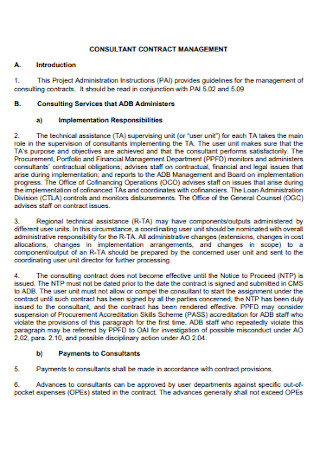
Consultant Management Contract
download now -
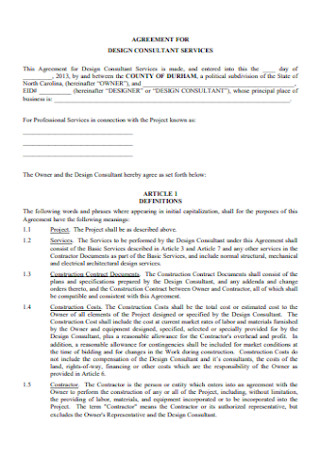
Design Consultant Service Contract
download now -
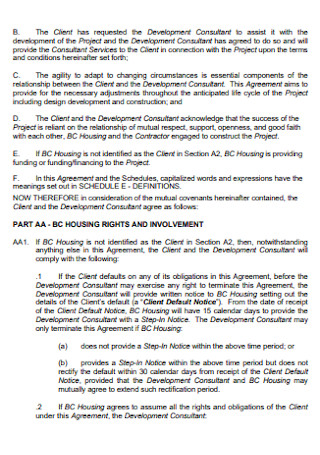
Development Consultant Services Contract
download now -
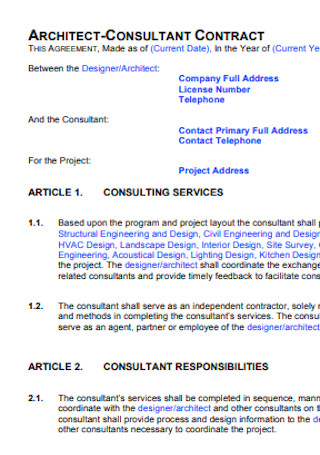
Architect Consultant Contract
download now -
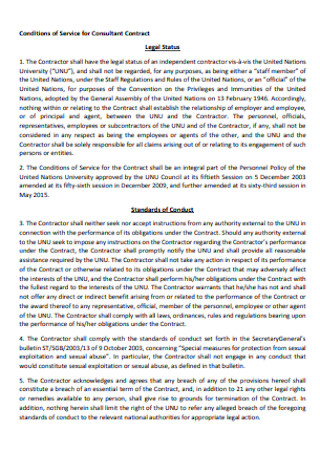
Conditions of Service for Consultant Contract
download now -
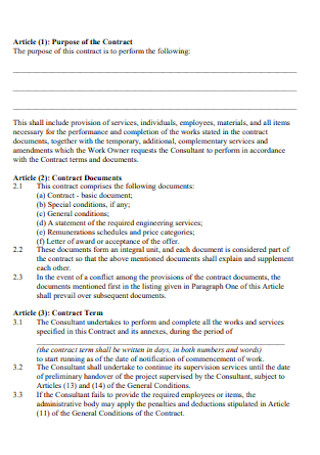
Consultancy Engineering Services Contract
download now -
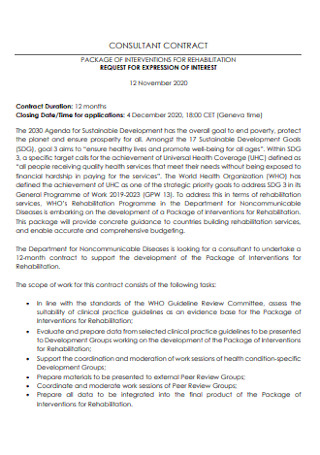
Basic Consultant Contract
download now -

Consultant Contract for Employment
download now -
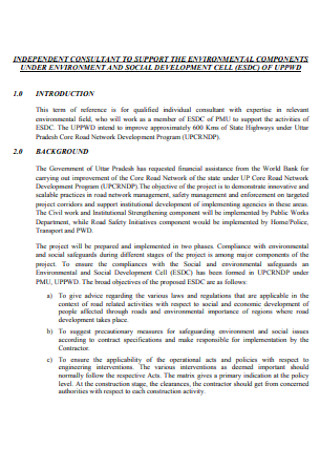
Standard Consultant Contract
download now -
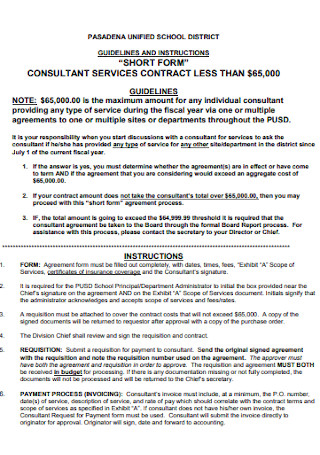
Formal Consultant Contract
download now -
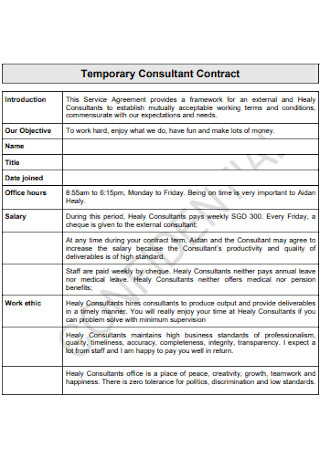
Temporary Consultant Contract
download now -
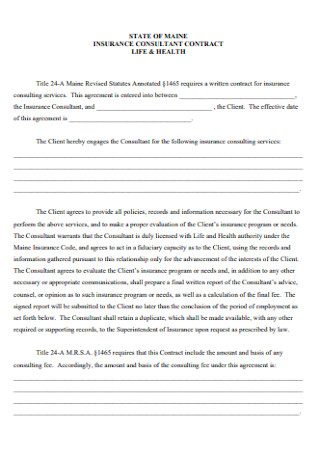
Insurance Consultant Contract
download now -
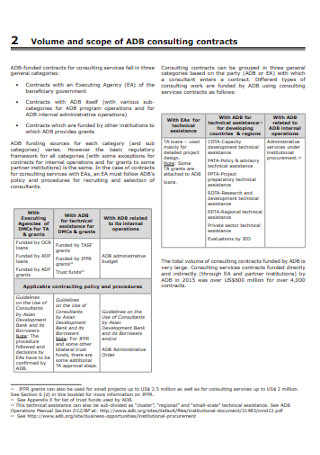
Winning Consulting Services Contracts
download now -
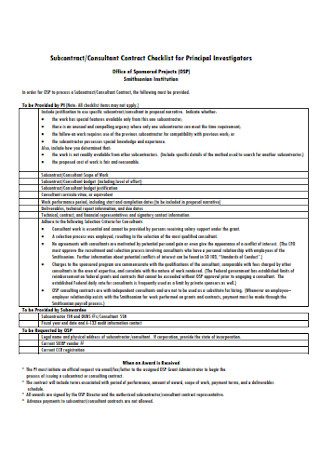
Consultant Contract Checklist
download now -
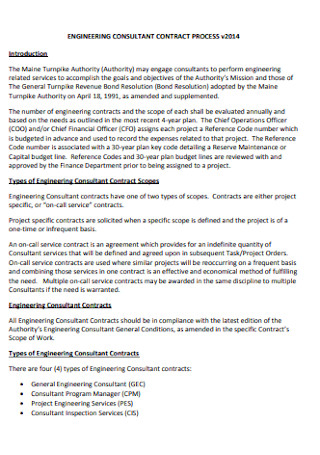
Engineering Consultant Contract
download now -
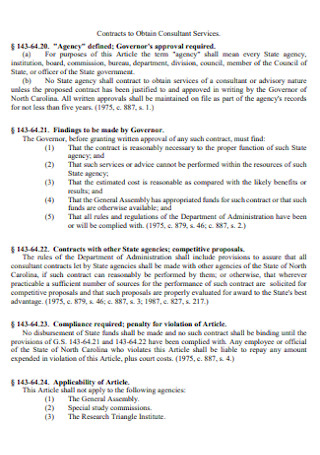
Contracts to Obtain Consultant Services
download now -
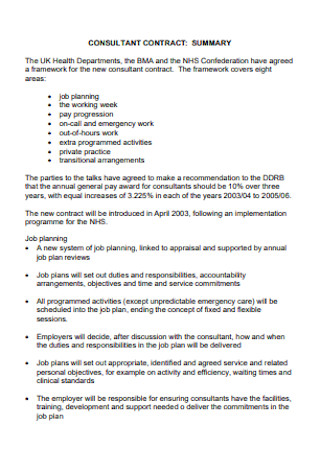
Sample New Consultant Contract
download now -
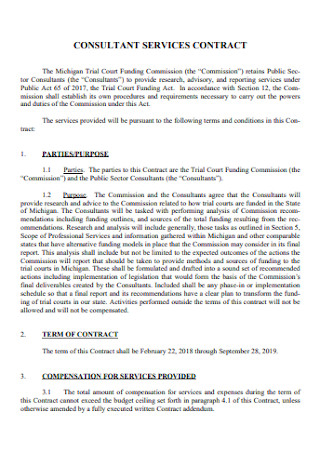
Consultant Service Contract
download now -
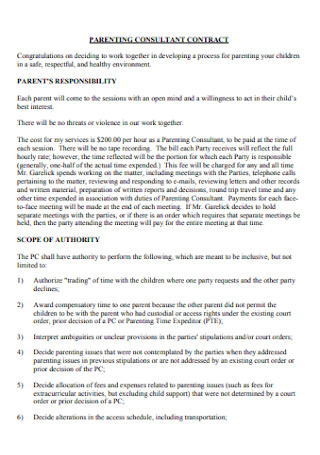
Parenting Consulting Contract
download now -
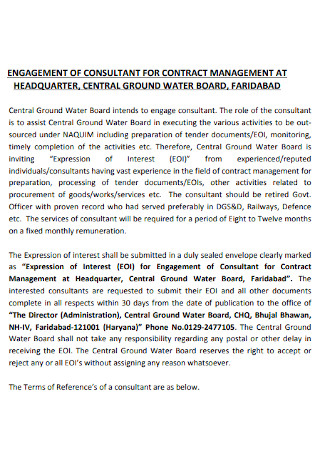
Engagement pf Consultant Contract
download now -
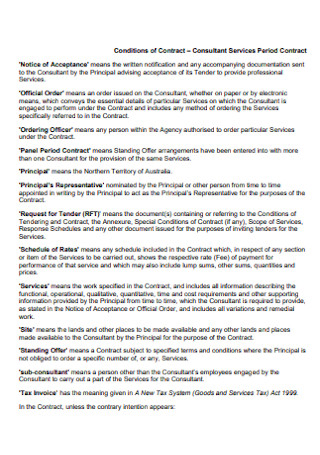
Consultant Services Period Contract
download now -
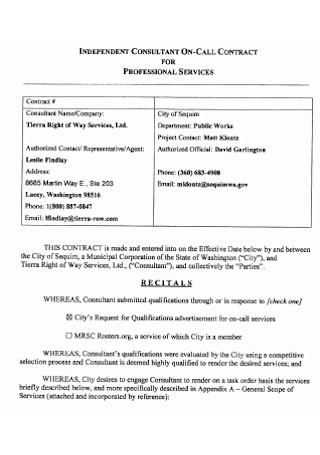
Independent Consultant On-Call Contract
download now -
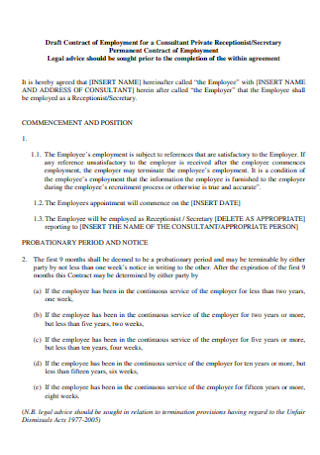
Contract of Employment for a Consultant
download now -
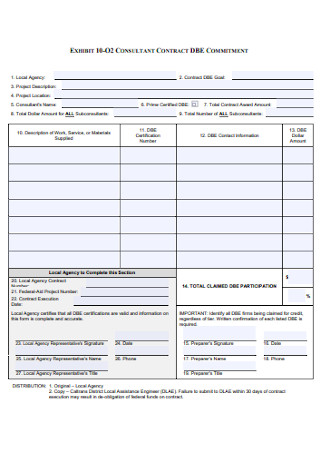
Consultant Commitment Contract
download now -
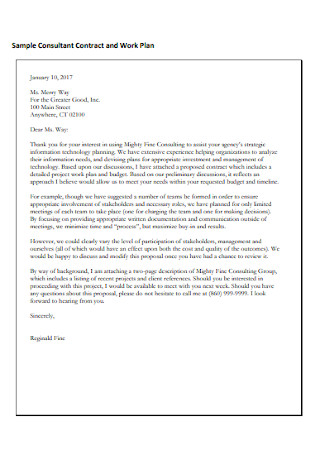
Sample Consultant Contract and Work Plan
download now -
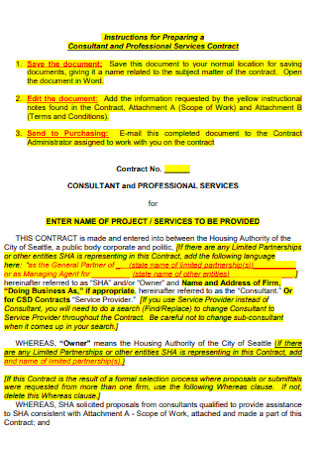
Consultant and Professional Services Contract
download now -
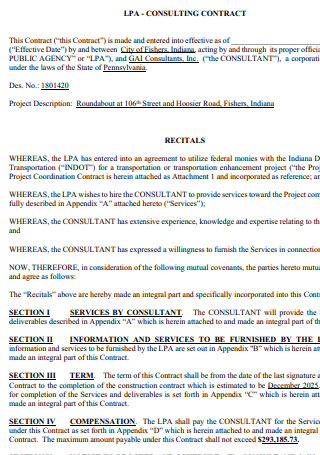
Sample Consultant Contract
download now -
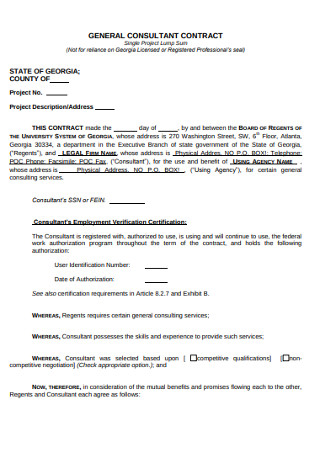
General Consultant Contract
download now -
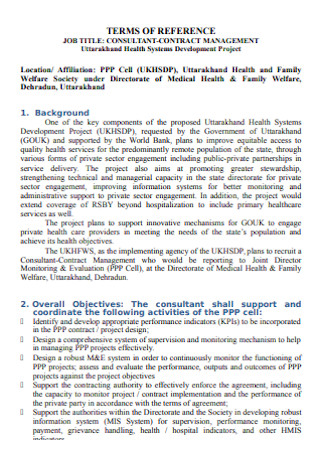
Sample Consultant Management Contract
download now -
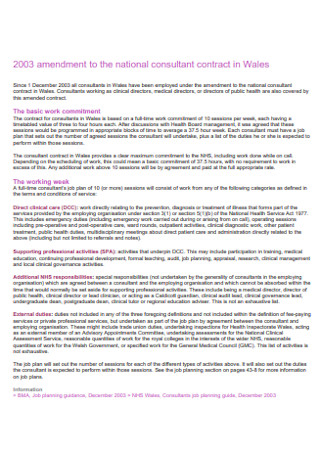
National Consultant Contract
download now -
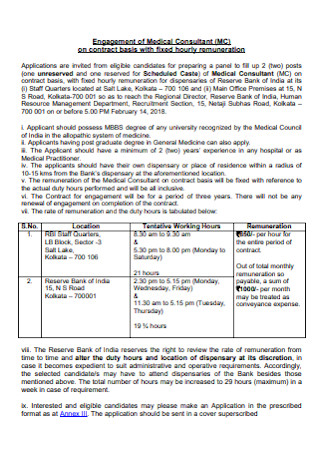
Engagement of Medical Consultant Contract
download now -
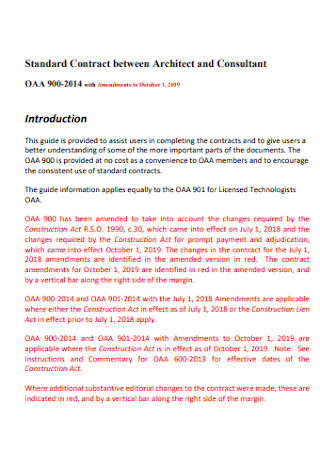
Standard Contract Architect and Consultant
download now -
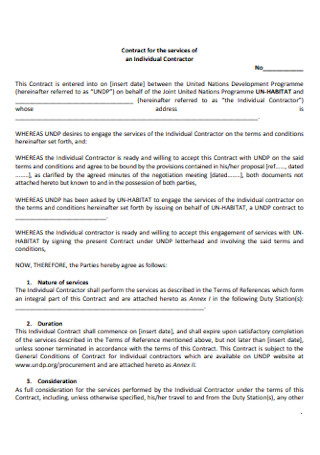
Individual Consultant Contract
download now -
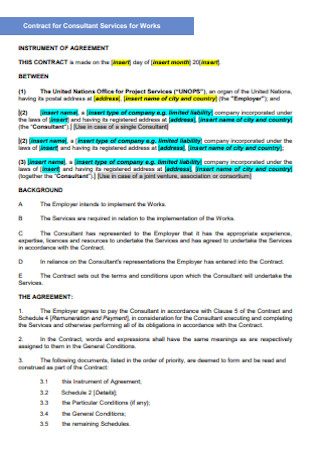
Contract for Consultant Services for Works
download now -
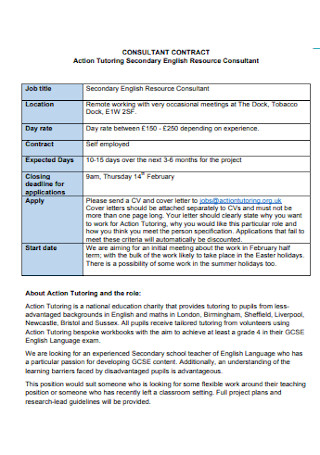
Tutoring Consultant Contract
download now -
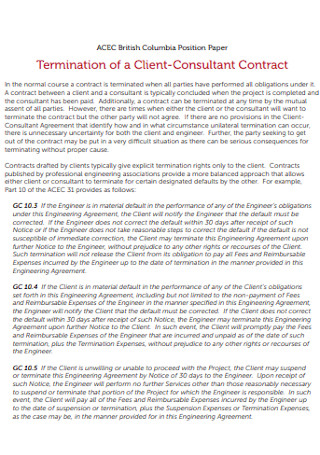
Termination of Client Consultant Contract
download now -
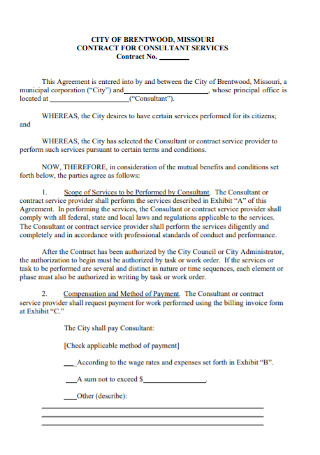
Contract for Consultant Service
download now -
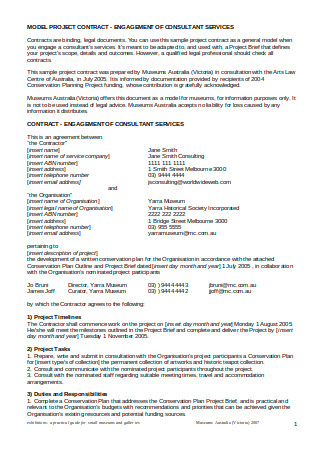
Project Consultant Contract
download now -
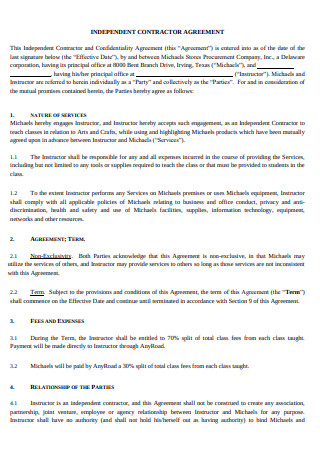
Independent Contractor Consultant Agreement
download now -
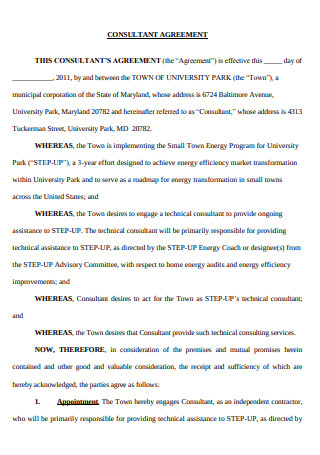
Technical Consultant Contract
download now -
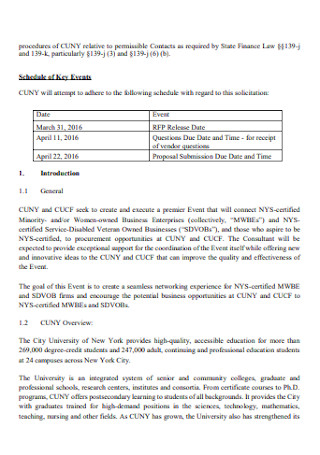
Event Consultant Planner Contract
download now
FREE Consultant Contract s to Download
40+ SAMPLE Consultant Contracts
What Is a Consultant Contract?
Elements of a Consultant Contract
How to Write a Consultant Contract
FAQs
What are the benefits of having a consultant contract?
What do you have to keep in mind when making a consultant contract?
Why hire a consultant?
As a result, the individual handles it on their own or seeks help from friends or family. More often than not, these circumstances require support from friends and family and additional support from a knowledgeable perspective, especially in the involvement of another party. Given a similar event, the first thing the individual must do is to stay calm, assess the situation, and withhold further actions. Afterward, it is best to have a conversation with a consultant as they know what processes follow. It is also advisable for any person to at least have an idea of a consultant contract. To learn about these legal documents, along with their definition, composition, and construction, read through the article below.
What Is a Consultant Contract?
A consultant contract is a legally binding agreement between a client and a consultant, utilizing the services of a consultant with the payment of a client. A consultant contract falls under the identification of a services agreement or services contract. The document falls under a wide range of services falling under the definition of consultancy, including provisions of guidance and advice, document and software preparations, personnel management, and projects and services implementations, to name a few. The consultant contract specifies and outlines the scope of work with the terms and conditions between the client and consultant. The consultant, written on the contract, is either an individual or agency. It is also necessary to stress that the agreement between the parties does not specify the consultant becoming an employee of the client.
According to the statistical data collected by the Statista Research Department in April 2021, the management consulting industry remains to be developing and thriving in the United States. From 2012, the data present a growing number of management consultants in the US, with the numbers increasing every year, finally reaching an estimate of 734,000 consultants in 2020. The number of consultants continues to grow despite the pandemic affecting multiple businesses and organizations in the world.
Elements of a Consultant Contract
A contract, in general, helps in devising services, terms, and conditions that two parties agree to in a shared and beneficial relationship. A consultant contract provides a comprehensive framework of a consultant’s fields of expertise to provide services to their clients. It is necessary to write a consultant contract with both parties present with the aid of a law practitioner. Here are the common elements found in a consultant contract.
How to Write a Consultant Contract
A well-written contract protects the consultant or the consulting firm when things go wrong. A good contract defines the details of the agreement and also includes provisionary sections and legal statements. Consider these steps in creating a comprehensive consultant contract.
Step 1: Identify Involved Parties in the Contract
Make sure to include the complete names, company details, including address and contact information, and the tax identification numbers of the client and the consultant. Also, identify how the contract refers to each of the parties for the entirety of the document. It is necessary to indicate the words that refer to the client or consultant to recognize their roles and responsibilities throughout the contract without repeating their names.
Step 2: Distinguish the Scope, Deliverables, and Timelines for Project Completion
It helps to provide a detailed outline of the scope of work, project deliverables, and a possible timeline for project completion. If the contract is for a large project, it is advisable to create a separate document containing the work’s scope, insert it as an attachment, give a brief background of the report, and cite it for the reader to see. Any product or service done by the consultant for the client does not immediately become the client’s property. For example, the consultant creates a particular result for a client, the content of that output belongs to the client. However, the processes, researches, and other components put into making the product are the consultant’s intellectual property unless otherwise stated in the contract.
Step 3: Communicate Billing and Payment Terms
It is necessary to include detailed information about payment terms and other fees. The consultant and client agree on the conditions of financing for the services, either through periodic payments or the entire amount after the project’s completion. Whatever the result of the agreement is, it must reflect on the contract for transparency.
Step 4: Emphasize the Non-Relationship Between the Parties
Under the Internal Revenue Services’ (IRS) specific guidelines, the contract must state the difference between being an independent contractor and an employee of the client. It must be clear how and why the consultant keeps their independent status. Include a statement that stresses the importance of being an independent contractor, waiving a regular employee’s benefits under the law like vacation leaves, sick leaves, health insurance, and other privileges the client offers to its full-time employees.
Step 5: Address Relevant Clauses and Agreements in the Contract
Clauses including non-disclosure, confidentiality, and conflict of interest must reflect in the contract. The three clauses go hand in hand to ensure the safeguard of the project against plans of publicizing and plagiarizing the work for another party. The statement prevents disclosure of information regarding projects and services, except individuals and other contractors working within the client’s organization. It also limits the consultant from engaging in arrangements similar in nature to the current client. A termination clause must also be present in the contract and outlines valid reasons for pulling out of the contract. The grounds of termination include financial issues, illnesses, and failures to meet deadlines. It must also identify the term for notifying a cancellation and its impact on compensation.
Step 6: Indicate Legal Statements With the Help of an Attorney
It is also advisable for a consultant contract to include legal standards and injunction rights. Specifically, identify steps in addressing and resolving disputes, attorney fees, mediation, and arbitration processes. It is beneficial to have a legal attorney to determine the contract’s legality before parties sign and participate in the agreement.
FAQs
What are the benefits of having a consultant contract?
It is essential to have a well-written consultant contract as it serves as a reference for the expectations of the parties when the project ends. It also identifies the scope of services with the client detailing what, how, and when the consultant procures the duties. Writing it in the contract manages expectations and avoids confusion. A consultant also uses the contract to market services and provide opportunities to engage working together with the client in the future. In reaching the project’s completion, both parties review the agreement and identify problems and projects to work on in the future. The consultant contract also helps clarify the role of the client during the project. Ensure the responsibilities are identified, including paying financial compensation on time and provide materials and responses promptly. It also establishes a professional relationship and allows the consultant to use the contract for tax purposes as proof of independent contractor. It also identifies and protects information and resources relating to the course of work and a detailed plan about intellectual property. Lastly, it sets the terms of payment to avoid conflicts after work. It must show the exact amount of pay, payment method, and payment schedule.
What do you have to keep in mind when making a consultant contract?
Once a consultant knows the parts of a consultant contract and its creation process, helpful tips must be kept in mind. It is significant to identify the company goals moving forward. It helps the individual to have a clear mind and guarantees achieving the objectives set. It is also beneficial to read over the contract. Before signing, it is best to read the document over, assuring that the content is comprehensive. The consultant must also be open to any form of renegotiation. A contract must be fair and fulfills the needs of both parties. Also, do not fear being too detailed. It is also advantageous to learn about state laws governing the contract and its terms. Remember to keep a hard copy of the document and have each party sign it for reference and record keeping. Finally, consider having a lawyer review the contract. It helps to have an impartial party knowledgeable about legal agreements to ensure the document is fair and valid.
Why hire a consultant?
Consultants are skilled and knowledgeable in their expertise. It is also advantageous that the consultant keeps track of all his records to supplement his skills. They also identify problems as they are prone to be overlooked by regular employees. Hiring a consultant supplements staff and cuts costs only requiring their services for a specified period. Consultants also act as catalysts for needed changes. They do not need to worry about corporate culture, employee morale, and other issues to implement change in an organization. A consultant also provides necessary objectivity regarding several concerns by giving fresh viewpoints and unbiased ideas to promote the organization. In some cases, consultants also share knowledge of their expertise, given that they learn about new ideas and information every day and teach these current trends to stay competitive. They also bring new perspectives to the organization and even help to inspire and influence other people.
Needless to say, consultants are helpful not only in solving and recognizing problems but also offer fresh perspectives and new ideas to the company. It is also worth mentioning that either as a consultant or client, an individual must familiarize themselves with a consultant contract before the need arise. In this case, the consultant indicates necessary details that support the client’s needs, and in return, the client agrees on fair terms and compensation with the consultant. There is nothing wrong with asking for help, especially when individuals offer expertise to improve other’s understanding. In the words of Barack Obama, “Don’t be afraid to ask questions. Don’t be afraid to ask for help when you need it. I do that every day. Asking for help isn’t a sign of weakness, it’s a sign of strength. It shows you have the courage to admit when you don’t know something, and to learn something new.” Check out the consultant contract samples from the article above and start expanding your area of expertise by hiring consultants.
